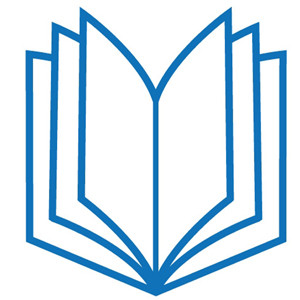Knowledge is for sharing
Open Access: the future of academic publishing
Researchers, authors and funding bodies are realising that the high price of access to academic books and journals means that only a select few can read their work. Open Access (that is, making texts free to read and reuse) helps spread research results and other educational materials to everyone, globally, not just to those who can afford it or have access to well-endowed university libraries able to pay the high prices required by commercial ‘legacy’ publishers. Scholars are realizing that participation in a system that confines the readership, and therefore the intellectual engagement, to the affluent few is not only morally questionable but a potential drag on the progress of their subject, and indeed of their academic careers.
It is becoming a requirement for publicly-funded research to be made available in Open Access format and we are able to achieve this quickly and effectively. However, the debate as it stands today revolves around the proposition that Open Access is desirable provided that somebody pays the extra cost — clearly this is not a sustainable model. The choice has been misleadingly presented as one between more public expenditure and the (non-Open Access) status quo in which readers pay for access. In many countries including the UK public expenditure is already ingrained in the whole system, not only in the grants and tax advantages enjoyed by private charitable funding bodies, but also in the public financing of universities, including meeting the cost of books and journal subscriptions by university libraries. Despite ‘market’ appearances, taxpayers’ money feeds into the income of legacy publishers, especially of journals. Since any increase in public expenditure would translate in a further transfer from the financially disadvantaged to the wealthy few, from the culturally deprived to the culturally privileged, more public expenditure is not attractive to any democratic government.
Some academic societies and promotion committees, however, are still wedded to the old publishing ways. Young scholars especially are being unfairly urged into publishing their work into an undemocratic, financially unsustainable and technologically obsolete environment — rather than opting for a more dynamic future that many see coming and would prefer to join. It is time that academics prioritize dissemination and cease contracting out their work to legacy publishers whose corporate aims and practices include non-academic considerations.
New forms of publication
In the old system, created by the enlightenment, knowledge was produced, disseminated, and engaged with in the close world of universities, libraries and museums, learned societies and clubs, books and periodicals. In the age of paper and moveable type, with its associated costs and limited access, this was all that was possible. The digital age, on the other hand, provides us with the opportunity to break free of such constraints. We can have short books, long books, books that consist mostly of illustrations, books with moving images and audio material, books that are replete with links and books which interact with readers. Indeed we are now seeing a number of experiments ranging from participatory writing, interactive books, and works where links to primary sources add a new dimension to the research output: we are now free to think more in terms of the content we wish to convey, rather than of preconceived formats based on length, genre, category.
At Open Book we welcome proposals that engage with knowledge in new ways, and we are willing to help individuals and institutions develop new ways of disseminating research to better inform and interact with readers and researchers. For example, our recent book Denis Diderot’s ‘Rameau’s Nephew’: A Multi-Media Edition incorporates specially-recorded musical pieces into the body of the text, making Diderot’s work uniquely accessible and engaging for a general audience; one of our books on oral literature, Storytelling in Northern Zambia, allows readers not just to access the author’s opinions on the topic, but also to listen and watch the storytellers directly. Many of our titles also provide additional digital resources that further enrich the research presented in the book. In this way readers can verify and participate in the academic discussion — and scholars can make further use of the primary material in their academic research.
Open Book Publishers, is a signatory of the Budapest Open Access Initiative, participant in the OpenEdition project, and founding member of the Pure Open Access Alliance.




